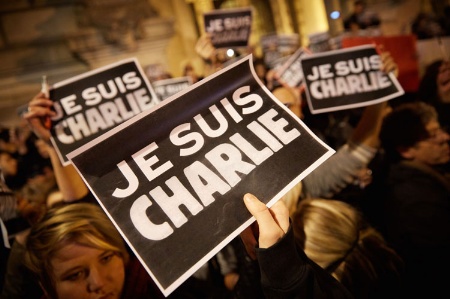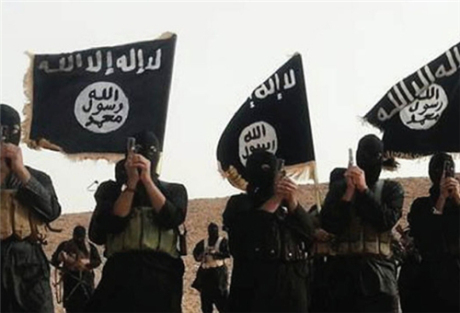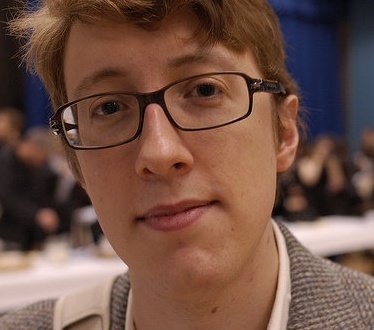
Charlie Hebdo, Mia Khalifa and the sacredness of vulgarity
There are two stories in the media this week that touch on the nature of a free society. The first is headline news in the major newspapers and television networks, while the second is largely relegated to the Buzzfeed-esque websites. I’m referring to the terrorist attack on Charlie Hebdo in Paris, where 12 people were killed by alleged Islamic terrorists, and that Mia Khalifa has become the most popular porn star on the internet’s more saucier websites.
If people make a connection between the two stories it will probably be Islam.
Charlie Hebdo is well known for courting controversy by offending the religious, especially Muslims. The attack is presumably motivated by their publication of cartoons featuring Mohammed and general mockery. Ms Khalifa, as someone who works in pornography, no doubt offends a wide array of people from anti-pornography feminists to the intuitively prudish. However, she has attracted a great deal of abuse online, including death threats, because she is a Lebanese-American and many people in the Levant take exception to her career on religious grounds.

Are we fighting a just war against the Islamic State?
This question is a little provocative so a clarification is in order. There is a distinction between whether a war is just (jus ad bellum) and whether it is being conducted in a just manner (jus in bello). In the case of IS it is incontrovertible that there is just cause for war. I have argued elsewhere that what is happening in IS occupied territory is attempted genocide. This legitimises military intervention, especially since the Iraqi government has requested help. What I wish to examine here is whether this war is being conducted justly.
Just war theory provides us with several principles that limit what is morally permissible in war. There are two principles that give us cause for concern when assessing the intervention against IS: proportionality and non-combatant immunity. The first of these is the idea that the means of war must be proportional to the ends. Soldiers should aim for victory, but this does not mean that victory can be pursued by any means necessary. There must be, to use Michael Walzer’s term, an ‘economy of force’ (Walzer, Just and Unjust Wars, 129-33). A general should not waste the lives of his soldiers in a bloody offensive when there are more economical means to victory. He should not resort to tactics that will produce longstanding bitterness and prolong the war (such as taking no prisoners).

Is the Islamic State committing genocide?
Recently I had a chance to visit the Christian community of Tur Abdin in Eastern Turkey, a long standing community. The monasteries where I stayed dated to the 5th century AD. The people are generous and welcoming, but there is certainly a feeling of isolation and anger in the community as well. You can see Syria stretching out in the distance from the Mor Hananyo Monastery. The people have family and friends in Syria and Iraq. These are the Christians who have been subjected to the brutality of the Islamic State (IS) along with the Yazidi, Shabak and Shia people of the region. Yet, this is nothing new to the people of Tur Abdin.
The monasteries, with their austere beauty and clockwork way of life, give the impression of tranquility. The reality is that this region of the world has been subjected to repeated instances of inter-ethnic and inter-religious conflict. All but one of the people I spoke about the region and its history had lost family in the pogroms of the late 19th century, the terrible bloodletting that accompanied the collapse of the Ottoman Empire, down to the recent conflict between Ankara and the Kurds. Violence is woven into the historical fabric of life in Tur Abdin.
The people are horrified and scared of what is happened a few kilometers from their homes, but they do not expect anyone to help. They’ve seen this before. The international community condemns, prevaricates and retreats. Admittedly, things are starting to happen. Airstrikes against IS have escalated and now include strikes in Syrian territory. Greater assistance is being given to the Kurdish Peshmerga, moderate Syrian forces and the Iraqis. However, this is insufficient. The world needs to decisively intervene in this conflict because the Islamic State is attempting to commit genocide against the minorities in their territory and we all have an obligation to stop them.

“When is Genocide Permissible?” Never.
Last week Yochanan Gordon posted a blog entry on The Times of Israel’s website entitled “When is Genocide Permissible?” The answer to this question so blatantly obvious that one has to wonder why the question was asked. Indeed, this inaugural post was almost one word long. However, I felt compelled to look at Mr. Gordon’s reasoning given that it has caused such outrage among people on both sides of the conflict. To borrow from J.S. Mill, doing otherwise makes dead dogma out of living truth (Mill, 37). Genocide is obviously evil, but the forensic examination of an argument with which we disagree is the best way to refute it and, hopefully, convince those who hold it to put it aside.










